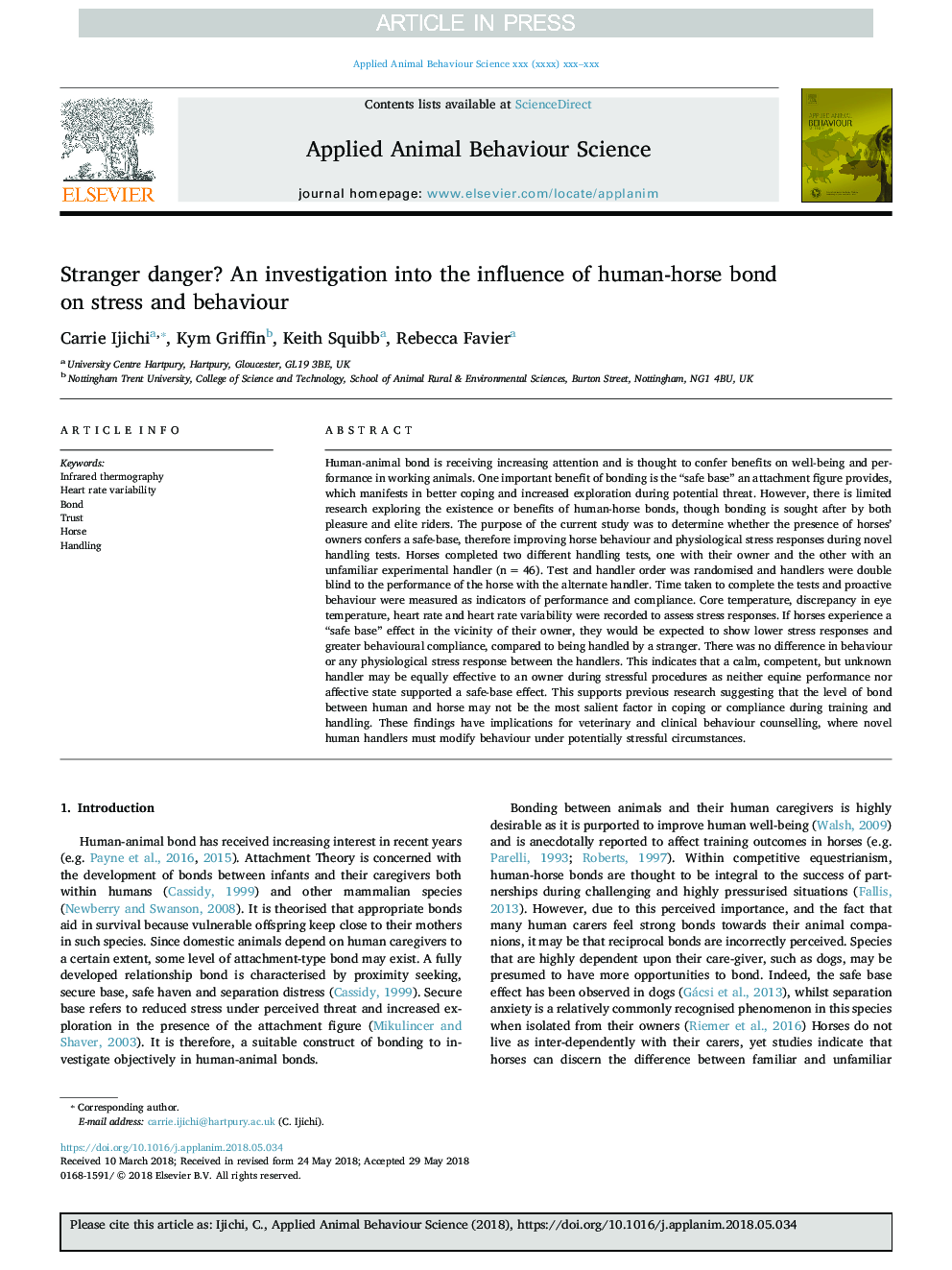| کد مقاله | کد نشریه | سال انتشار | مقاله انگلیسی | نسخه تمام متن |
|---|---|---|---|---|
| 8882691 | 1625300 | 2018 | 5 صفحه PDF | دانلود رایگان |
عنوان انگلیسی مقاله ISI
Stranger danger? An investigation into the influence of human-horse bond on stress and behaviour
ترجمه فارسی عنوان
خطر غریبه؟ بررسی تأثیر پیوند انسان و اسب بر استرس و
دانلود مقاله + سفارش ترجمه
دانلود مقاله ISI انگلیسی
رایگان برای ایرانیان
کلمات کلیدی
ترموگرافی مادون قرمز، تنش قلبی، رابطه، اعتماد، اسب، رسیدگی،
موضوعات مرتبط
علوم زیستی و بیوفناوری
علوم کشاورزی و بیولوژیک
علوم دامی و جانورشناسی
چکیده انگلیسی
Human-animal bond is receiving increasing attention and is thought to confer benefits on well-being and performance in working animals. One important benefit of bonding is the “safe base” an attachment figure provides, which manifests in better coping and increased exploration during potential threat. However, there is limited research exploring the existence or benefits of human-horse bonds, though bonding is sought after by both pleasure and elite riders. The purpose of the current study was to determine whether the presence of horses' owners confers a safe-base, therefore improving horse behaviour and physiological stress responses during novel handling tests. Horses completed two different handling tests, one with their owner and the other with an unfamiliar experimental handler (nâ¯=â¯46). Test and handler order was randomised and handlers were double blind to the performance of the horse with the alternate handler. Time taken to complete the tests and proactive behaviour were measured as indicators of performance and compliance. Core temperature, discrepancy in eye temperature, heart rate and heart rate variability were recorded to assess stress responses. If horses experience a “safe base” effect in the vicinity of their owner, they would be expected to show lower stress responses and greater behavioural compliance, compared to being handled by a stranger. There was no difference in behaviour or any physiological stress response between the handlers. This indicates that a calm, competent, but unknown handler may be equally effective to an owner during stressful procedures as neither equine performance nor affective state supported a safe-base effect. This supports previous research suggesting that the level of bond between human and horse may not be the most salient factor in coping or compliance during training and handling. These findings have implications for veterinary and clinical behaviour counselling, where novel human handlers must modify behaviour under potentially stressful circumstances.
ناشر
Database: Elsevier - ScienceDirect (ساینس دایرکت)
Journal: Applied Animal Behaviour Science - Volume 206, September 2018, Pages 59-63
Journal: Applied Animal Behaviour Science - Volume 206, September 2018, Pages 59-63
نویسندگان
Carrie Ijichi, Kym Griffin, Keith Squibb, Rebecca Favier,
